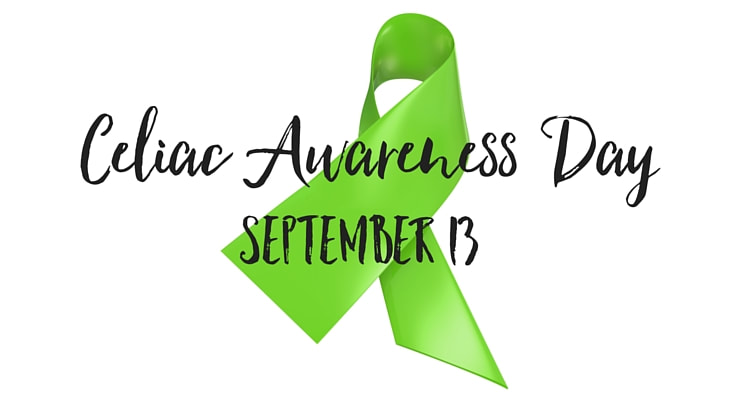
What is Celiac Disease?
An immune reaction to eating gluten, a protein found in wheat, barley, and rye. Over time, the immune reaction to eating gluten creates inflammation that damages the small intestine's lining, leading to medical complications. It also prevents absorption of some nutrients (malabsorption). The classic symptom is diarrhea. Other symptoms include bloating, gas, fatigue, low blood count (anemia), and osteoporosis. Many people have no symptoms. The mainstay of treatment is a strict gluten-free diet that can help manage symptoms and promote intestinal healing. (source: Mayo Clinic) In 2012 US Senate Resolution 550 was passed, making September 13 National Celiac Awareness day. The resolution was sponsored by Senator Ben Nelson, a Democrat from Nebraska. The bill recognizes that citizens of the United States, must be made aware of Celiac Disease, which affects 1 in 100 people in America. The bill asks that people in the United States observe National Celiac Disease Awareness Day (source: http://www.govtrack.us/congress/bills/112/sres550/text). On September 13, we recognize Dr. Samuel Gee (1839-1911), an English doctor and pediatrician. He was the first person to have given the first modern day description of Celiac Disease. He gave the description in 1887, at the Hospital for Sick Children. He recognized that the disease isn't just a childhood ailment, that it affects people of all ages. His findings can be found in the St. Bartholomew's Hospital Reports, which were published in 1888. Celiac disease is important, and serious. Those of us whom are afflicted with the disease, know the dangers of not adhering to a strict, life-long, gluten free diet. We know the risks of not being diagnosed properly. We've lived it. On average, it takes a good 10+ years to be properly diagnosed. Most of the 1% of people afflicted with the disease, don't even know that they have it. The damage done to the small intestine, by continuous consumption of gluten, can become life-threatening. Awareness of this disease is important, and early testing for the gene must be done. Educate your family, your friends, your community. For more information, visit: http://www.csaceliacs.info/index.jsp My story: I was diagnosed with Celiac Disease 10 years ago. For as long as I can remember, I have always had issues with digesting food. When I ate certain things, I had an adverse reaction. In the months leading up to my diagnosed via blood test and biopsy, I was very sick. I was so sick, I could not get out of bed. I had diarrhea 20+ times a day, which led to serious dehydration. I was in a lot of joint pain. I couldn't even get out of bed. Finally, I went to the doctor, and got my blood tested. I tested "very positive" for Celiac Disease. I was upset because I witnessed what the disease did to my grandmother. In the 1980s, my grandmother was diagnosed with Celiac Sprue. Back then, there were no gluten free aisles in the supermarket. There were no gluten free restaurants. There were no gluten free brands. There was nothing. My grandfather did find a place 2-3 hours away that sold safe grains that can be used to make baked goods. Every Friday, my grandfather trekked from central CT to the middle of MA to buy the grains. He brought it home and broke down the grain using a mortle and pestle (he used this until he could afford a Vitamix). He baked EVERYTHING for her from scratch. My grandmother's health improved on this gluten free diet. Unfortunately, the place that sold the safe grains closed down some years later. My grandmother went back to eating regular food. She became bedridden, unable to do anything for herself. She shrunk in height and lost a mass amount of weight (she was 60lbs when she died). She developed a hump on her back, and her bones became extremely brittle. As a kid, it was scary to see her in this situation. My own diagnosis scared me, because I wasn't even 30 yet. I didn't want to be in the same condition as my grandmother at my young age. When I was diagnosed, gluten free options were very very slim. It wasn't until a few years later when the gluten free craze exploded. That craze both helped and hurt the Celiac community. It helped because we finally had more options, but it came at a price: No one believed us when we told them we had Celiac Disease. They thought we were following a fad. Sorry folks, this isn't a fad for those of us with Celiac Disease. If even one speck of gluten enters our body, we get sick for weeks. It's painful, miserable, and we wouldn't wish the "glutening effect" on our worst enemy. With Celiac Disease being an autoimmune disease, it also puts us in the high risk category for Coronavirus. I hope my fellow Celiacs are taking it easy during this crazy time in our history.
1 Comment
|
©2017-2024



 RSS Feed
RSS Feed